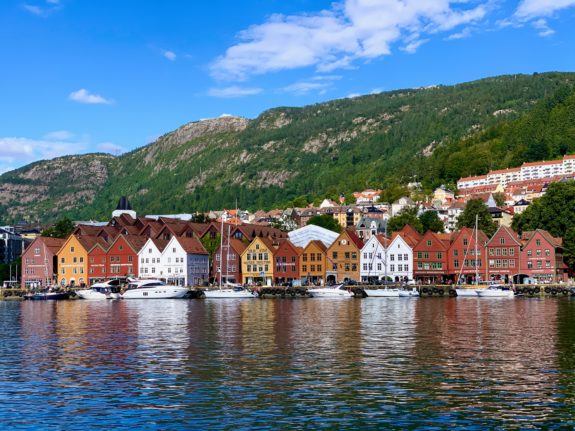Covid travel rules in Norway have been lifted for a while, and all but a few recommendations remain domestically. This is a far cry from a similar time last year when Norway had very strict travel rules in place.
Testing
Close contacts of Covid infected are not required to get a test, meaning if you have been in contact with somebody with Covid-19, you will not be required to get tested under the official rules.
However, if you wish to take a test, you can buy self-tests at supermarkets and pharmacies. You can also order Covid-19 tests from Norwegian municipalities if you want a PCR test. You can find the contact information for every municipality in Norway here. Facemasks are also widely available in shops and pharmacies.
Several private providers, such as Volvat and Dr Dropin, offer antigen and PCR tests with results within 24 hours. However, municipality tests can take longer to deliver results. If you need a test to travel home, you will not be able to get one from a local authority. These tests are only for those with symptoms of Covid-19.
Home tests will not cost more than 60 kroner from supermarkets, while a municipality test will be free. However, private providers’ tests are pricier, costing between 1,000 and 1,500 kroner at most private clinics.
Isolation
There are also no specific rules in regards to isolation.
“If you have respiratory symptoms, you should stay at home until you feel well. If you feel well, you can live as normal,” Helsenorge advises on its website. Meaning that if you are asymptomatic, you aren’t advised to isolate.
Other symptoms which you may need to isolate with include headache and blocked nose and influenza-like symptoms such as fever, cough, sore throat and feeling unwell.
The isolation information means you will need to liaise with the hotel or accommodation you are staying at.
Travellers are advised to check what their insurance covers before taking out a policy to avoid being left out of pocket if they have to pay for new flights or an extended stay because they are isolating.
If you test positive, you are also advised to steer clear of those in risk groups.
Self-isolation advice applies regardless of vaccination status or previous infection.
What else should I know?
If your symptoms get worse, the best course of practice would be to contact a standard GP.
You can also contact the out-of-hours urgent care number on 116 117. This will put you through to the nearest urgent care centre to you. Visitors can also call for an ambulance on 113, but this is only advisable in life-threatening situations, such as a stroke or cardiac arrest.
In addition to checking your insurance policy, you also will need to check the rules of the country you are returning to or travelling through in case you may need a test to enter.
If you have an EHIC card and receive medical care after testing positive for Covid-19, you will only be required to pay the same subsidised fees Norwegians do for healthcare. Despite this, European citizens are also advised to take out travel insurance.
Non-European visitors are entitled to urgent medical care but will need to pay the full cost with no prospect of reimbursement if they don’t have health insurance.



 Please whitelist us to continue reading.
Please whitelist us to continue reading.
Member comments